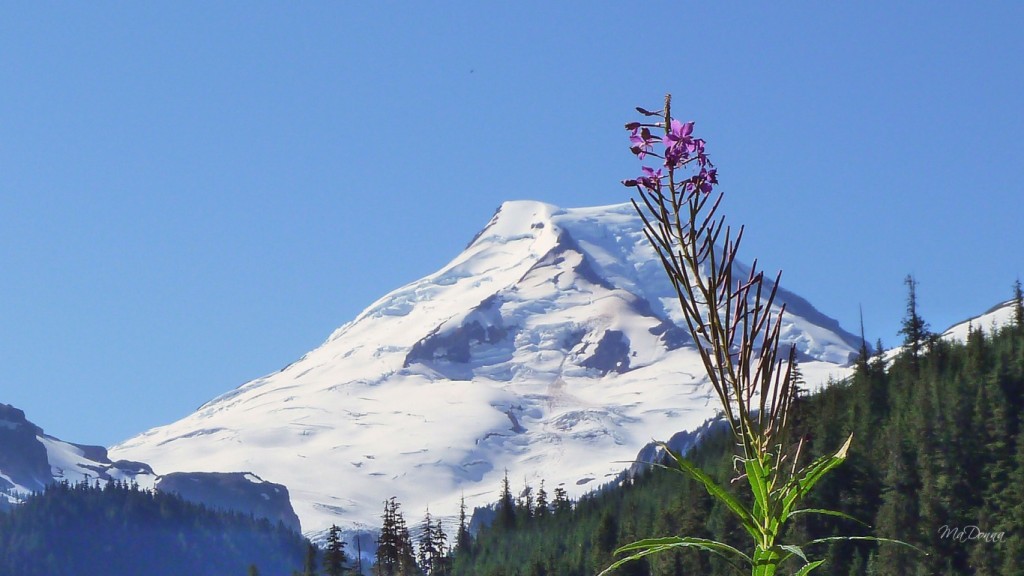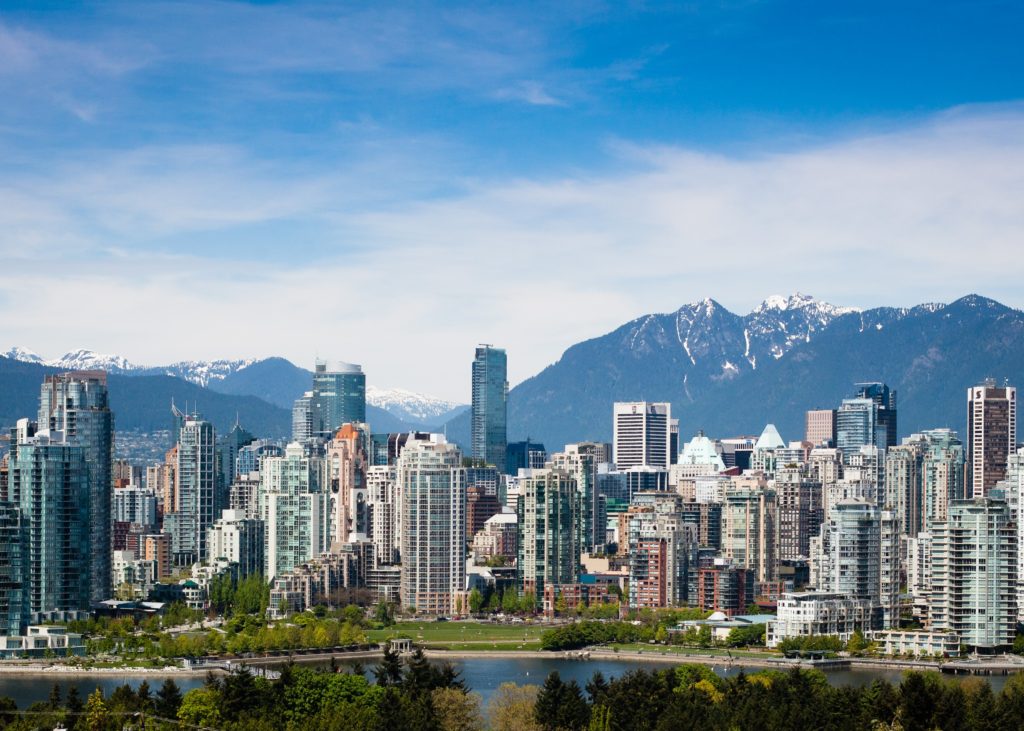
Among sociologists, it has become conventional wisdom to label the Pacific Northwest – or “Cascadia” – as a “secularized” region, a religious desert – a spiritual “none zone.”
I should know. I did it myself in this book.
But, as a sociologist and a Christian, I have become increasingly convinced that these labels are, in many ways, deeply problematic
As many of you know, more than 60 percent of Cascadia (roughly Washington, Oregon, and British Columbia) are religiously unaffiliated. Another 11 percent are Catholic, and 10 percent are some form of evangelical. The rest are a conglomeration of mainliners, Mormons, Jews and Muslims. That leaves 60 percent of Cascadians who are religiously unaffiliated, 30 percent are “nones” (i.e. spiritual but not religious) while the other 30 percent attest to being Catholic or Protestant, even though no church claims them.
These statistics have led sociologists and members of the media to conclude that Cascadia is religiously empty – a divine vacuum.
But I wonder if our sociological lenses (and my own Protestant eyes) have missed something important about the spiritual character and potential of this region. Perhaps we have too narrowly limited faith to people who “believe” and “belong” in the same manner as traditional Western Protestantism.
So, with that in mind, here is my attempt at an alternative evaluation of Cascadia – not as a spiritual “none zone” but as a region of spiritual abundance.
Please remember: I’m a sociologist – not a theologian. (So, I’m in way over my head.)
The Abundant Zone
I would like to propose that we, as Christians, evaluate Cascadia not in terms of what it lacks but in terms of what it has.
In almost every conceivable way, Cascadia – both the land and its culture – is characterized by a cultural and biological abundance. It is abundant in natural resources, abundant in human genius, abundant in its diversity of cultures, abundant in industry and abundant in educational opportunities.
Perhaps it is time to consider whether we should evaluate this place with a theology of abundance.
From this perspective, the region is a synecdoche for the Kingdom of God – a part of a much greater whole. Indeed Cascadia is a place of such wonder and awesome possibility that it simply can take one’s breath away.
Right up the street from my home on Bainbridge Island is a road named Potlatch. For the Native peoples, the abundance of this region was so bountiful that the practice of giving away one’s possessions became a ritual of competitive extravagance. Extravagance made possible by a region that seemed to have limitless capacities to provide for its inhabitants.
In the midst of this abundance, I have argued, to my surprise, that it is the evangelicals who have most accurately understood the opportunity of Cascadia. They look at the region as a vast landscape of possibility. And in all sorts of imaginative ways, they have taken advantage of the lack of religious options. They see an open market, and so they go to work, supplying their religious goods.
Liberal Christians, on the other hand, complain and feel guilty. Is it right to convert? For many of them, the answer is no – and to their credit there is the shadow of the post-colonial critique that instructs (but also perhaps undercuts) their mission to speak the good news.
But I wonder, how are we to look upon this vast region of abundance? Is there a third way beyond these evangelical and liberal approaches?
The Pacific Northwest and the Logos
What if we applied a hybrid Johannine / Eastern Orthodox Christian lens to this region?
In the Orthodox Tradition, we cannot know God’s essence but we can know God’s energy and his will in the world through the work and ministry of Jesus Christ. We can know God in the beauty, goodness and truth that is abundant all around us. In this sense, none of what we see, feel, touch, hear, or taste is secular in any sense: it is penetrated by the divine, and incarnationally infused with the divine Logos – the great ordering principle of reality. In this way, like Paul at Mars Hill, we Cascadian Christians can behold the truth, beauty and goodness of this region and declare that this abundance testifies to the ultimate truth, beauty, and goodness of our God.
Biblically speaking the seeds are falling all around us, and if we have eyes to see and ears to hear, then we might turn and begin to act as witnesses: witnesses to God’s abundance and to the genius in our midst; witnesses that by the word of God all things were created, en-fleshed and imbued with beauty, goodness and truth. We simply name the source and we make a witness, and we do it with great confidence that the abundance all around is God-given, God-infused. Isn’t this the real truth of our region? I think it is.
As some of you know I wrote a book about Rob Bell and a New American Christianity. I think Bell came, at the end of his ministry, to a much more incarnational vision of culture. And, so, in this spirit, I rewrote Paul’s famous speech in front of the Areoapagus:
Acts 17:22–31, New Revised Seattle Version:
22 Then Paul stood in front of the Amazon Complex on Lake Union and said, “O Seattlelites, I see how extremely religious you are in every way. 23 For as I went through the city and looked carefully at the objects of your worship – your technology, your businesses, your jets, your football stadiums, I found among them an altar with the inscription, ‘To the 12th man.’ What therefore you worship as unknown, this I proclaim to you. 24 The God who made the world and everything in it, he who is Lord of heaven and earth, does not live in stadiums made by human hands, 25 nor is he served by human hands, as though he needed anything, since he himself gives to all mortals life and breath and all things. 26 From one ancestor he made all nations and tribes to inhabit the whole earth, and he allotted the times of their existence and the boundaries of the places where they would live, 27 so that they would search for God and perhaps grope for him and find him – though indeed he is not far from each one of us. 28 For ‘In him we live and move and have our being.
And, of course, which one of us, looking upon the sunsets of this last summer in Seattle could not say, “Yes, this awesome beauty is God-created, God-formed; beauty as of the Son, who is Christ our friend, and his advocate the Spirit that comes alongside. And this One invites us to know the source of this beauty – to name that source, Christ in Cascadia, Christ for Cascadia, Christ through Cascadia.”
Isn’t Cascadia’s abundance a God-given abundance?
We should stop calling it the “none zone.” What a putdown!
It is the Abundant Zone, made by and given for the glory of God, that we, who are promised the abundant life, may know the source and go out and do greater things than even the Son. For the Son has gone to the Father, and the energy of God is with us and comes to us in abounding joy so that all people – and I do mean all people – may see and rejoice. Let us with eyes to see and ears to hear see and hear how we have been gifted with this glory.

